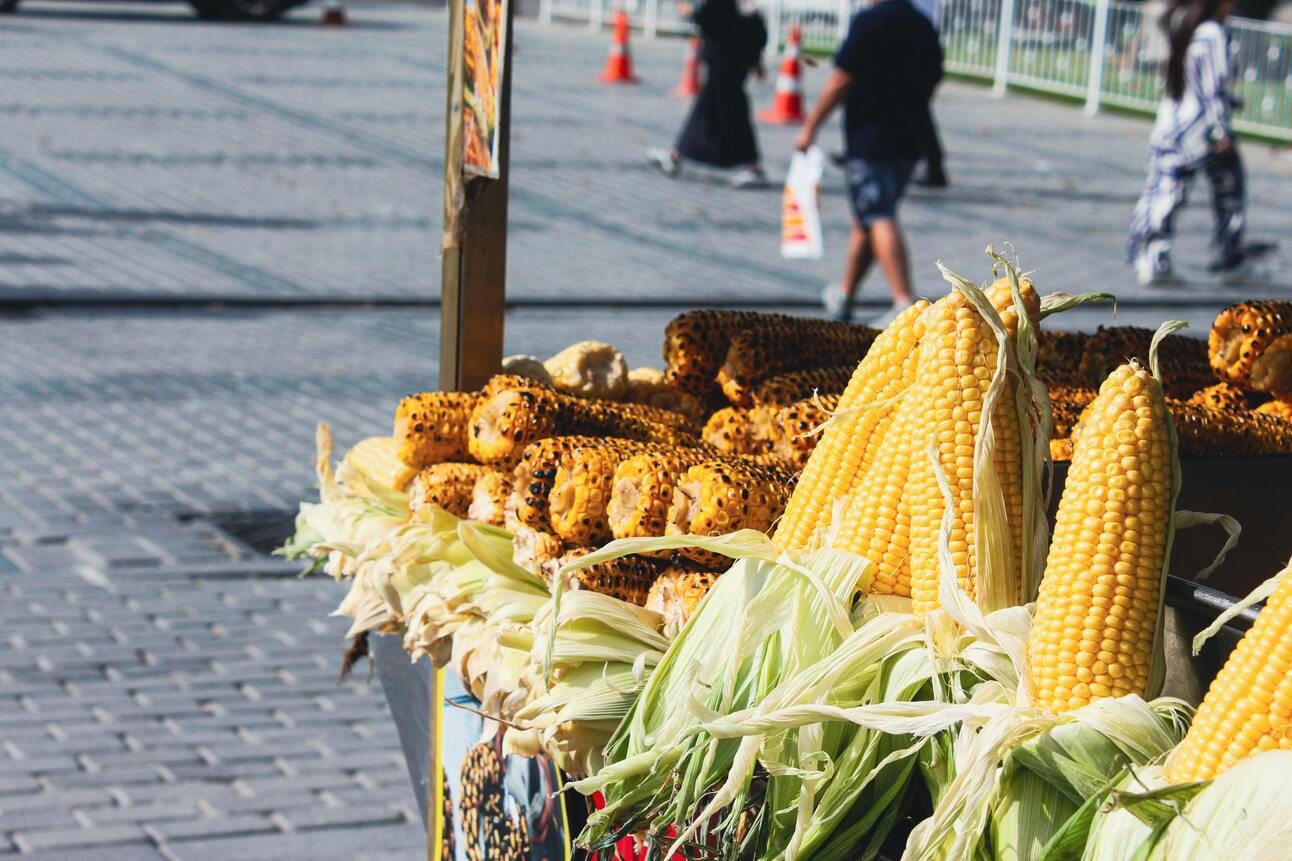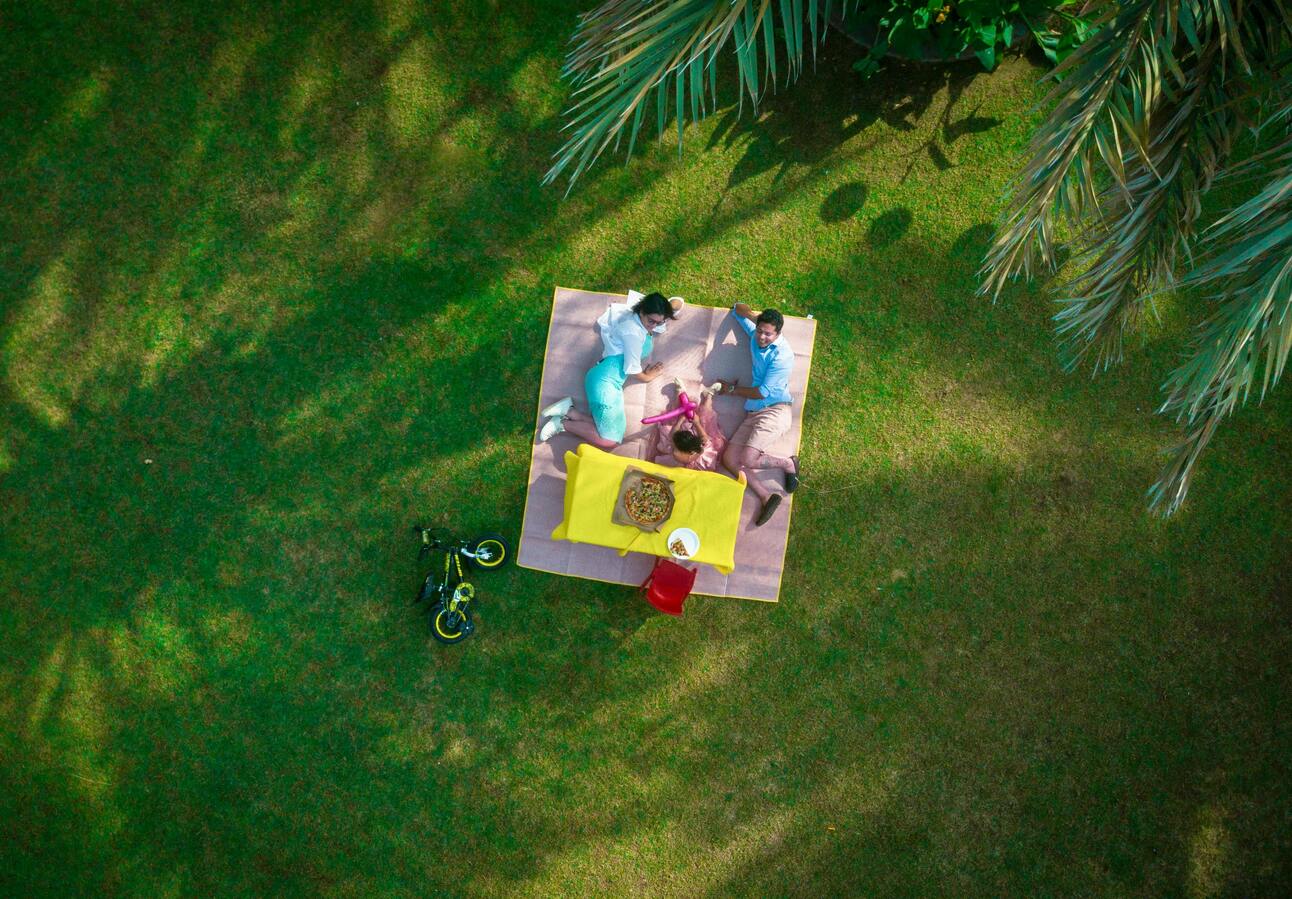My mahindi choma guy wants to start a business with me. He hasn't made enough this year to manage to go back home to Vihiga. Every penny he earned went to saving himself for the dream of a better tomorrow. Whenever I feel life is getting stale and my room’s a bit too familiar, I take a walk and pass by his stand, where we chat about nothing in particular as I pick the softest cob.
“Buana na hii Man U yenu inachapwa kila siku?” I start, because there’s always something to talk about with Man U fans.
”Tutashinda tu siku moja, naaminia huyu Ruben. Yeye ni wa Portugal kama tu Ronaldo, na anajua ball pia. Husikii alishinda ligi huko Portugal ile team ya Ronaldo ya kitambo [Sporting CP]”
His ambitions, just like all Man United fans’, are vast—he wants to be a traveling fruit vendor, selling fresh produce to businesses and individuals all the way from Wangige to Westlands. He wants to be that big. He knows people love fruits. It’s like clothes—those are businesses that no matter what AI does to us, will most likely never be swept away. Wangige is already a big food market, but he wants to supply those who can’t reach Wangige and those who’ve never heard of the market, like you who is reading this, but is within Westlands and Kabete.
Once, he ventured into the coconut trade with a friend, selling fresh coconut milk, coconut shells and the coconuts themselves. But the partnership collapsed when his partner chose weed and indulgence over reinvestment. He wanted to buy a bigger mkokoteni for more coconuts and easier locomotion. But the partner spent the little profits they made on bangi and whatever people smoke, instead of reinvesting into the hustle. Alone, he couldn’t sustain it, and now, here he is, roasting maize at my matatu stage. His spot is strategic though, right where commuters alight and they grab a piece as they head home. For a mahindi choma stand you mostly operate from late afternoon, as the sun starts to get a little warmer—orangely warm—and more people come out of the houses and from work, so grabbing a roast is on more people's minds. But even that advantage falters during festive seasons such as this. Business slows as people flock to nyama choma joints, hidden gems, and liquor stores. This Christmas left him with a half sack of unsold maize while the mutura stand across the road thrived, mockingly. The sight stung. Business stings when competitors do better than you. But that’s just how seasons of business are—sometimes you win, sometimes you’re stale.
I could see the ambition in his eyes, but losses and bad business days made his spirit fragile, and almost brought a tear to his eyes. Still, he kept his composure. You can’t cry at your business spot; you sell what you can and think about tomorrow later. Is that what Kenny Rogers meant when he sang ‘You never count your money when you’re sitting at the table. There’ll be time enough for counting when the deal is done’. I don’t know, maybe.
His ‘gloria in excelsis Deo’ was that even in this lull, he could still dream of a better hustle, of a bigger mkokoteni, of fruits that could move across the city. His persistence is his thanksgiving. I cheered him up whichever way I could, and left him chatting gladfully to another teenage couple who had also come to grab a cob. Looking at their eyes, I wondered how their Christmas was going, coz the lady had bruises on her arms, and the boy's trousers were clearly soaked wet. I didn't want to look too much at his trousers to try to decipher how their day had been—that would be gayish.

On my stroll home, my eyes are ever roaming about. Across the road, a hardworking office cleaner finally took a rare day off, ushering her two little ones to the roadside ice cream stand. That was as far as her Christmas could stretch financially, but the kids couldn’t ask for more. They wanted nothing grand—no merry-go-rounds or cotton candy. They wanted their mum, just as she was, with a smile on her face and a shared 30-shilling cone in hand.
She savored the moment, letting the sweet chill linger on her tongue. This was Christmas for her—Christmas for them—a fleeting taste of joy amid the grind. Glory to whichever Deity she believes in that she made it this far, even though dad didn’t make it to see this Christmas. For her, the ice cream, the children’s laughter, and the gift of presence were reason enough to give thanks.
Passed by my local mama mboga [greengrocer]. Her stall was overflowing. This was her season—the time when local families cook feasts of sacrificial mbuzi, chapati on every corner, and steaming pots of stew. Mukimo for her and her family. I passed by hoping to say a merry Christmas but her stall buzzed with eager customers piling up tomatoes, avocados, bundles of greens and sweet potatoes. Business was brisk, but her smile was the real draw—so bright it makes me want to buy greens everyday. That was enough for me, I smiled my way home.
I bet her teenage kids, back at home, were already plucking feathers from a chicken destined for supper. She would return late, her hands bleeding and bruised from chopping and packing greens all day, but her heart would be full. This was why she breaks her back all year. Their laughter and full bellies over Christmas supper would make all her effort worthwhile.
For the neighborhood kids around, Christmas is about dressing up. Faces painted in wild colors, oversized sunglasses perched on tiny noses, they parade through the streets like miniature celebrities. This is their day, with no care in the world whatsoever other than to look their coolest. Balloons bounce in their hands, and ice pops melt too fast in the heat, and so they lick the juice from their elbows up. This is their season to shine, their moment to show off new outfits, to see and be seen.

😎😎
Back in the day, legends like us wore baggy denim suits, striking fierce poses in front of KICC banners. Chicken and chapati waited for us at home, but the real magic was in the streets. Woe unto you if neighbors cooked chapati and your family didn’t—those smells carried judgment with them. Still, in every house, no matter how big or small, there was gratitude. Those were the small joys of Christmas that painted our childhoods. That is the festive season. To see and be seen. Giving, and being given.
In another side of the world, the festive season unfolds in luxury. Homes, adorned inside and out with intricate decorations, look like postcards come to life. Presents spill out from under grand Christmas trees—one kid gets a PS5, another unwraps the latest noise-cancelling AirPods, and yet another flaunts an electric scooter. A rich friend of mine got a new skateboard this Christmas, and now I’m sure he will never ride a bike again in his life, coz apparently he despises bikes but loves boards. I don’t have an option to despise any coz a bike is all I can ride for now.
Later, families venture out to fine restaurants, indulging in gourmet meals. Some board yachts for a Christmas cruise in the Maldives, while others soar through Dubai skies on skydiving expeditions. Yet, for some wealthy families, the real gift lies at home—Dad postpones business trips, and Mom takes a break from her social calendar. They cook together, laugh together, and, for once, linger at the same table. Even amid abundance, thanksgiving abideth more. Gratitude for family, no matter how gilded or grounded.
Yet in another part of the world, a teenage couple lies on a Maasai shawl in the cool afternoon sun, surrounded by trees of the Karura forest. A Christmas picnic date. A cocktail kit. Tusker Cider. Sandwiches. Coke. Cookies. A bag of crisps. And muffins. Small notebook for 2025 manifestations. And of course, a tripod stand and the phone for camera and video. Memories captured for eternity. They will both not forget this Christmas, when they shut out the world and let in nature. Intertwined with trees and flowing water to become whole again. To feel human again. Both of their families are far away this year, and they found warmth in each other’s company. Family embodies different persons.
The forest’s canopy filters the sun, painting dappled patterns over their shawl. They laugh, share stories, and steal shy glances that linger. Love, in its simplest form, wrap them like the breeze. To them, this moment is Christmas. They raise a toast and whisper ‘in excelsis Deo’ for a kind of love that doesn’t come wrapped in paper or bound by tradition, but simply found them when they needed it most.

✍🏽Reagan.
